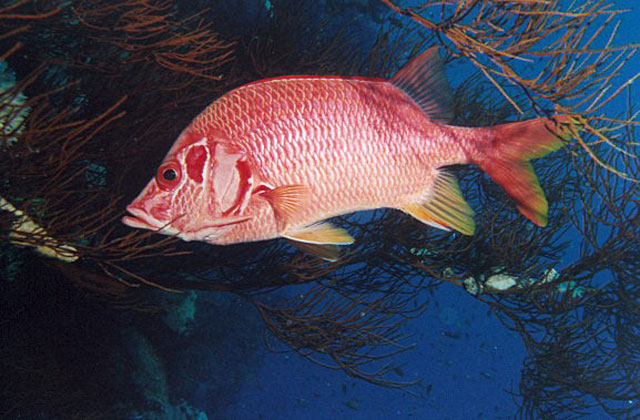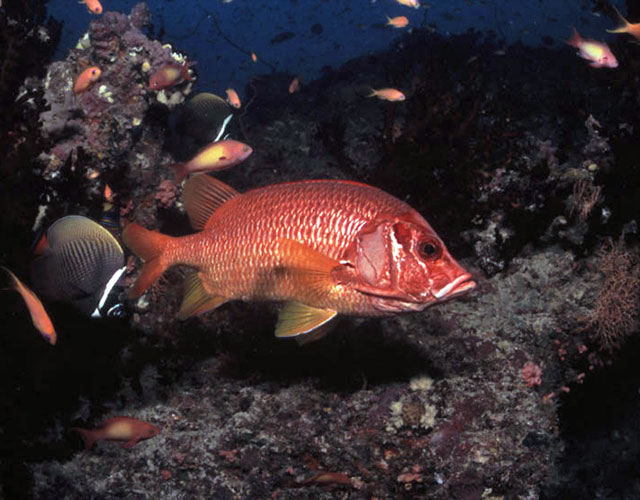


The largest of all the squirrelfish, you see this in the Indo-Pacific including the Red Sea and East Africa. A member of the Holocentridae family, squirrelfish have large eyes and are nocturnal. During the day you’ll find them under ledges and in caves, away from the light.

Like many nocturnal fish, Sargocentron spiniferum is red. To us it is easy to spot during the day, but to other fish it blends into its dark crevice or cave. Long red light wavelengths don't penetrate water well, so fish colour vision tends to be tuned to the shorter, blue and ultra-violet end of the spectrum. This means that red and pink fish are inconspicuous.

Growing up to 45 cm, they live alone or in small groups. You can distinguish Sargocentron spiniferum from other squirrel fish by the red blotch behind its eye and its yellow fins.
The Sabre squirrelfish lives to around 7 years.
The name Sargocentron is derived from the Greek. Sargo means striped and kentron spike. This refers to the spines on the fish's dorsal fins and their stripey-looking bodies. If you weren't sure about the spinyness, name spiniferum also comes from the Latin word for spine or thorn. They are probably known as squirrel fish for their habit of resting in cavities in the reef during the day, like squirrels in their tree dens.
References
Coral Reef Fishes, Indo-Pacific and Caribbean, by Ewald Lieske and Robert Myers, Harper Collins
New Scientist Magazine, 29 July 2000
A S Mohammed et al Age, growth and population parameters of the spiny squirrelfish, Sargocentron spiniferum, 2020